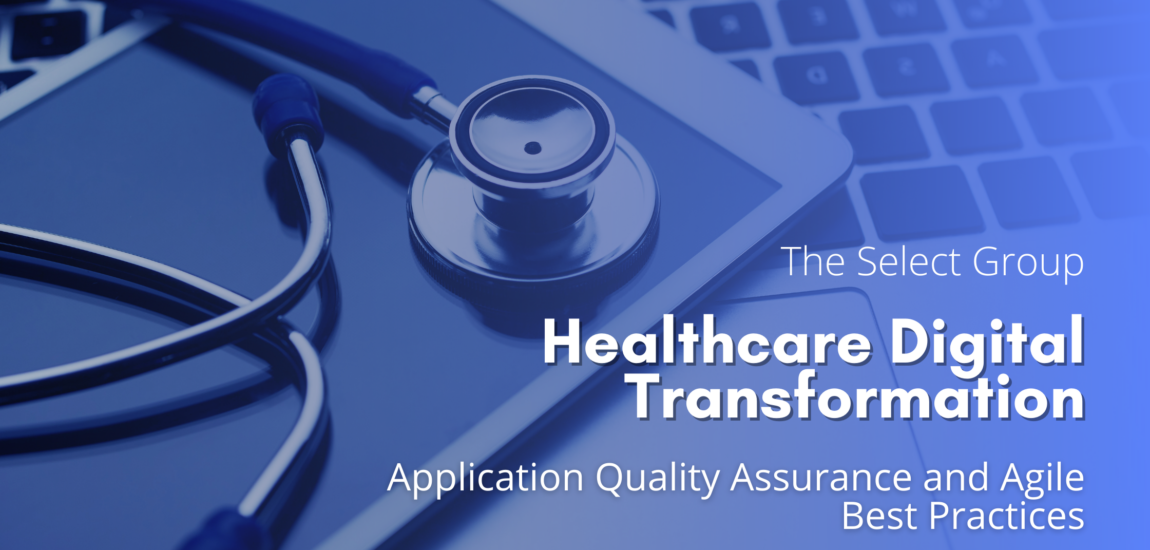Healthcare Digital Transformation

Executive Summary
The healthcare industry is experiencing an unprecedented evolution involving an increased awareness and focus on technology. Specifically, an efficient, integrated healthcare system allows an enterprise to coordinate service delivery across a wide array of disjointed systems. To do this effectively, these systems must correlate relevant clinical and enterprise information, such as billing, with patients regardless of where the services were delivered. In addition, a healthcare enterprise system must collect, organize, and extract value while providing healthcare and controlling costs, emphasizing the need for technological integration.
Below are the fundamental building blocks of a healthcare system. These are inclusive of the dependencies between disparate systems and applications that are likely to exist:
- Service Delivery includes quality, access, safety, and coverage.
- Workforce consists of human resources management, skills, and policies.
- Information System ensures the production and analysis of information.
- Medical Products includes procurement and supplies needed to ensure equitable access, assured quality, and cost-effective use.
- Financing encompasses funds for health and allocates resources, purchases goods, and services to improve quality, equity, and efficiency.
- Leadership and Governance ensures the existence of strategic policy frameworks, effective oversight and coalition building, provision of appropriate incentives, and attention to system design and accountability.
- People refers to individuals, households, and communities, such as as civil society, consumers, patients, payers, and producers of health. This is inclusive of knowledge, attitudes, behaviors, and practices among these individuals.
As technology continuously requires system upgrades, most healthcare systems have invested a lot of time and money in increasing operational efficiencies while minimizing costs. However, to provide appropriate care, it’s imperative for the patients, providers, hospitals, and broader healthcare industry to streamline information flow and communications. Additionally, in healthcare enterprise applications, software quality assurance is essential to ensuring the safest and most reliable software is being utilized to support the healthcare system.
Software Quality Assurance
A software quality assurance (QA) organization plays a role in any software development lifecycle. The integration of software quality assurance, analysis, verification, validation, and independent testing activities greatly enhance the safety, reliability, and maintainability of any critical software system. The healthcare industry is regulated by several government and non-government entities, and these must be considered when testing the software. Additionally, to minimize risk to organizations that do not adapt quickly to change, software quality assurance organizations must also consider the implementation of governance, business planning, and information technology. With this, finding enough resources to properly build an effective QA team is a constant challenge for many organizations, including healthcare.
To balance complexity and practical innovation, healthcare organizations look to leverage well-known industry best practices and principles, such as Agile. In our experience across many market industries, Agile is essential for transformative projects and has enabled organizations to adapt and adopt innovation effectively. In addition, some fundamental principles of Agile, including addressing customers’ needs and embracing change, can help increase the healthcare experience while utilizing the software.
Customer Request
A major healthcare services provider recently rolled out a cloud-based Software as a Service (SaaS) healthcare product. However, with its development team testing its code, our client lacked the personnel and formal testing process necessary to support its new product. To ensure success, the services provider urgently needed to build a Quality Assurance (QA) team with modern-quality engineering talent and oversight. Additionally, our client needed assistance transforming to a Scaled Agile Framework (SAFe). The goal was to implement a formal process to reduce pressure from the internal development team, who was previously testing its code.
Application Project Engagement
TSG Managed Solutions
Our client looked for a partner who understood the complexities of software quality assurance in a highly regulated industry. After spending time with the client’s team to understand its needs and craft a comprehensive solution, the TSG Managed Solutions Team took ownership of the project.
The proposed solution emphasized the importance of a smooth and gradual migration of software quality assurance from the development team to the new group. Therefore, our planning process identified the different capabilities required to create a complete team for the client:
- Quality Assurance Leads
- Senior Quality Assurance Analysts
- Quality Assurance Analysts
- Senior Software Test Engineers
- Automation Engineers
Our rapid fulfillment of an entire team and deliverables-based approach allowed us to stay engaged at scale with a client. Our process begins with appointing a long-term engagement manager to be the single point of contact for our client, ensuring service-level agreements (SLAs), deliverables, and milestones are met. The engagement manager also identifies and manages the project’s scope as dictated in the SOW, including all financial performances, such as invoicing, budget tracking, and service level agreements, in addition to team performance issues.
Benefits of Digital Transformation in Healthcare
Increased Efficiency
Since 2016, our clients have leveraged The Select Group for projects outside of their organization’s core competency. They recognize building solutions expertise in-house will require heavy investment in the necessary skills, processes, procedures, and tools. To alleviate this and increase success, we enable our clients to work on well-executed projects beyond their current skillset and offer the value of integrating with a company that does it well.
Benefits to the client included:
- Deduced time spent hiring and providing personnel oversight.
- Improved business agility for the client.
- Delivered faster return by leveraging best practices and operational strategies.
- Enabled a faster rollout of new services, saving them time and money.
- Provided a testing roadmap and an implemented agile methodology.
- Partnered with TSG to open both a data integration and a development team following the success of the QA team.
Implementing a new application?
We can help.
